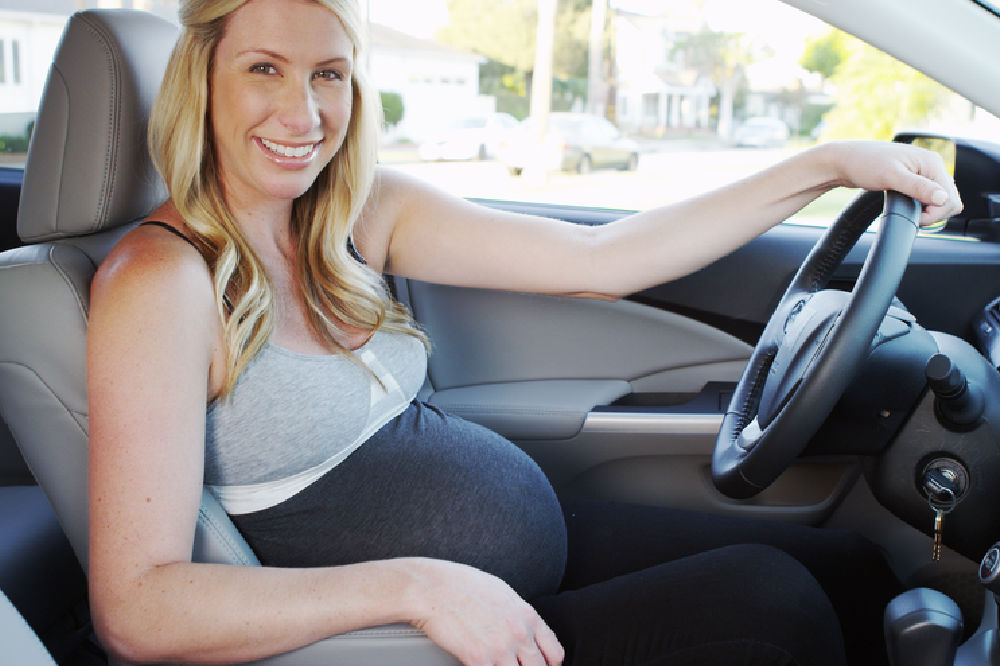Being in a car accident can be terrifying, but the terror magnifies if you are pregnant. There is plenty of reason to be concerned. One 2015 study found that “the risk of fetal death from a traffic crash is 5 times the risk compared to the first 9 months of a baby’s life.” It is estimated that there are between 1,500 and 5,000 fetal fatalities each year in the United States. And in actual fact, medical records don’t require a cause of death if the fetus is below 20 weeks gestation, so many more deaths occur than are recorded.
- A study published in the Canadian Medical Association Journal noted that pregnant women in their second trimester are more likely to be involved in motor vehicle accidents than other women, or even other pregnant women. They attribute this difference to “diverse physiologic and lifestyle changes that may contribute to increased driving and driving error.”
- The biggest cause of trauma resulting in hospitalization in pregnant women is motor vehicle accidents. It is also the most dangerous cause of trauma for these women.
- It is possible for a fetus to be injured or to die in a motor vehicle crash even if the mother is not injured seriously, or injured at all.
The most common cause of fetal fatalities after MVCs:
- Placental abruption: This happens when the placenta separates from the uterine wall abruptly. It is dangerous because it can cause the mother to bleed heavily. It can also stop oxygen from reaching the baby.
- Uterine rupture or laceration: This happens when the uterus is either partially or completely ruptured, which can happen as a result of blunt trauma. Injuries to the uterus rarely occur in traffic accidents, except in the case of pregnancy, where the uterus is larger, filled with fluid, and not housed completely in the pelvis. Uterine ruptures can be fatal to both the baby and the mother.
- Direct fetal injury: This is somewhat rare because the fetus is surrounded by amniotic fluid, which can act as a protective shock absorber. However, in the instances when it does occur, the infant’s head is the body part most frequently injured, simply because it is the largest part of the baby. Skull fractures can happen when the baby’s head is propelled into the mother’s pelvis or spine by a part of the car.
Motor vehicle crashes can also cause:
- Miscarriage: This is defined as a loss of a fetus before 20 weeks of gestation.
- Stillbirth: This is defined as the loss of a baby after 20 weeks of gestation.
- Hemorrhage: A profuse loss of blood can be dangerous to both mother and baby. The mother may go into hypovolemic shock. In 80% of cases like these, the fetus will die because the body directs blood only to the mother’s essential organs.
- High-risk pregnancy: A pregnancy can become high-risk and necessitate increased monitoring after a collision.
- Birth defects: Babies that suffer from a lack of oxygen, premature births, or blunt force trauma injuries can develop birth defects.
Safety measures you can take:
- Wear a three-point seatbelt correctly: According to the NHTSA, seatbelts save an average of 15,000 lives per year. Pregnant women are far safer wearing seatbelts than not wearing seatbelts. However, many pregnant women are not aware of how to properly adjust the seat belt to their growing bellies. The lap belt should be positioned across the lap, not across where the baby is. Also, steering wheels should be tilted upwards to provide more room. Finally, the seat should be slid back as far as possible away from the steering wheel. Simply following these recommendations can mean that the baby is 5 times more likely to survive an accident.
- Don’t speed (which is a recommendation for everyone) or drive with anyone who takes risks. Greater speeds cause more serious accidents and more serious injuries.
- Do not become distracted by cell phones, food, or anything else.
- Follow the rules of the road and look out for other drivers who may not be driving carefully.
What to do if you are pregnant and in a car accident:
The most important thing to do is to get checked out as soon as possible at a hospital or doctor’s office. This is crucial even if you believe that the accident was relatively minor, and even if you do not feel that you were injured.
Warning signs to look for:
- Vaginal bleeding (even spotting)
- Pain (particularly in the abdomen)
- Any change in the movements of the baby
- Faintness or dizziness
- Swelling
However, don’t wait for warning signs. As we advised above, seek medical attention immediately.
As with any car accident, there are certain steps to follow immediately (if you are able):
- Ensure that everyone is safe
- Phone the police
- Collect insurance and contact information from the other driver and witnesses
- Get a copy of the accident report
- Keep copies of all medical records and receipts
- Contact an experienced car accident attorney
If your baby has been injured, or if you have tragically lost your baby, you will have extreme emotional anguish to deal with. You will also face a mountain of medical bills and other expenses. Filing injury claims for a car accident in Indianapolis can be a complex and confusing process. At Crossen Law Firm, we will treat you with compassion while we fight for the compensation you need and deserve. Our car accident attorneys have the skills and knowledge necessary to effectively negotiate with insurance companies to obtain maximum compensation.

 317-401-8626
317-401-8626 
.jpg)